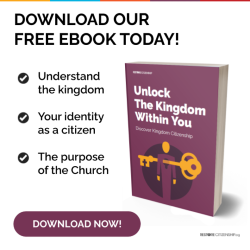During the times of kings and powerful oligarchs in Scotland, many of the Lord's citizens stood up for what many might term religious freedom.
Continue to listen or read this article below
James Guthrie 'the short little man who could not bow'; helped to write a searching pamphlet called 'The Causes of the Lord's Wrath against Scotland'.
Holding a copy of this work was seen as treason against King Charles Stuart and his government.
James and other Covenanters represented themselves as ambassadors of the Lord privately and publicly. They held private assemblies intended to understand and address the national and community issues of their day. One of the problems was that the king saw himself as one who 'was sovereign and supreme in all matters temporal and spiritual and that if a church exercised powers of government and discipline in her lawful sphere, it broke in on the authority of the magistrate.' - James Guthrie.
The battle James and others faced in their generation were one of establishing the Lord's government in their community (sphere) independently from the king. We face the same challenges nationally, and locally, this challenge is not a religious one but a legal one. The Covenanters were covenanted to their Lord first not in a religious sense but a constitutional sense. That allowed them to stand up for the Lord against principalities and powers as ambassadors who represented the King of kings and the Lord of lords. They were not standing up for religion, although that is how many believers have perceived their actions. Many of them preached an unwanted message of the imminent return of the King; this news shook the throne of Scotland because it spoke of the King who was coming to judge all citizens and the throne dwellers.
The Covenanters stood up for a theocratic form of government by supporting freedom of conscience and confronting the notion of the so-called divine right of kings. By their position, the Covenanters stood up against the government of the day. Not only did they speak out against the king, but they did so by standing with the King of kings by obeying his laws and continuously making decisions about how to conduct themselves and to judge according to his will.
Looking at the portrait of our history many believers will see James and other patriots of the kingdom as religious men but a closer look at the setting of the day and contrasting it with Matthew 2:1-12 we will see the Covenanters in a different light. When the Magi came to Jerusalem asking, “Where is the one who has been born king of the Jews?”. When King Herod heard this he became disturbed, and all Jerusalem with him. In the same vein during the time of great persecution and outright attack on believers we see the portrait of the Lord change from one of a religious leader to the conquering king.
Let us look closely at why men like James are persecuted and recognize that it is because they are citizens of another kingdom, making them peculiar. They had no choice but to represent His Kingdom, by keeping the laws and judging themselves and all things by it. Ambassadorship is why James wrote the pamphlet, and this is why martyrs are willing to lay down their lives. Before we can embrace this same ambassadorship, we must be prepared to lose our religion, in the sense of an organised system of beliefs that denies Jesus as King and opposes the establishment of his kingdom on this earth.
All believers are called to preach the message of the Kingdom which in turn depicts Him as the King. Let us remember that religion to men like James was not one of creed but one of ambassadorship that compelled them to stand in front of kings and governments in defiance. They did not lay down their lives for a founder of a specific religion but for the King of the universe. The Lord calls us to a life immersed in his Kingdom so that we can say not 'where is the king,' but here is the King enthroned with full ownership of all things including thrones and nations.





